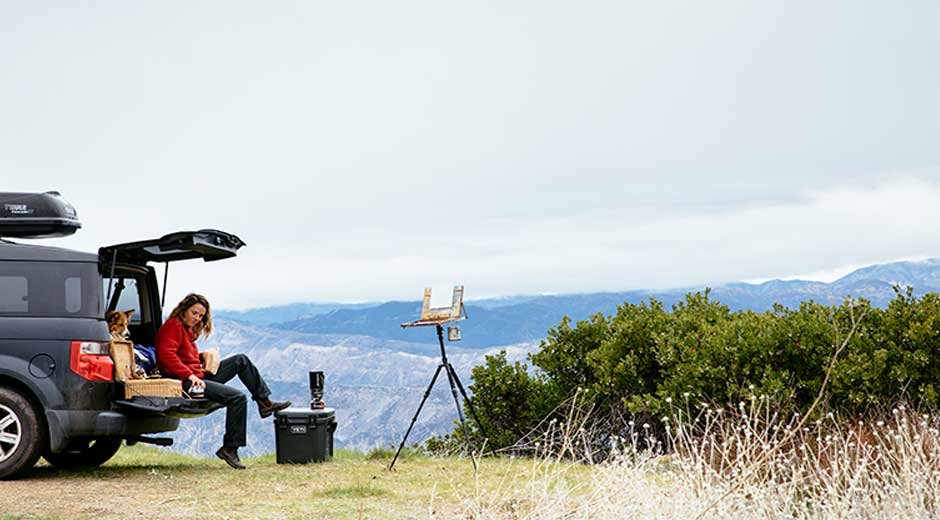In today’s world, more travelers are ditching planes and hopping into cars for road trips. But how can we hit the road without leaving a massive carbon footprint behind us? Enter the era of eco-conscious road trips. This blog post is your guide to the must-have tech that turns any road trip into an environmentally friendly adventure. Whether you’re a seasoned traveler or a newbie to green travel, these insights will help you gear up for a guilt-free excursion that aligns with your sustainable values.
Contents
- 1 Why Go Green on the Road?
- 2 Electric Cars and Hybrids
- 3 Solar Panels for Vehicles
- 4 Portable Water Purifiers
- 5 Eco-Friendly Camping Gear
- 6 Digital Navigation and Planning Tools
- 7 Reusable Travel Containers
- 8 Compact Composting Solutions
- 9 Eco-Conscious Entertainment Options
- 10 Final Thoughts on Eco-Friendly Road Trips
Why Go Green on the Road?
The allure of the open road has captivated adventurers for generations. However, traditional road trips can be a significant source of pollution. Gasoline-powered vehicles contribute heavily to carbon emissions. By opting for eco-friendly alternatives, you make a personal commitment to reduce your environmental impact.
Going green on the road doesn’t mean sacrificing comfort or convenience. In fact, many eco-friendly technologies enhance the travel experience. By using less fuel and creating less waste, you also reduce costs, making your trip easier on the wallet. It’s a win-win situation that combines sustainability with savings.
Beyond the financial and environmental benefits, choosing an eco-conscious road trip sets a positive example. Travelers have the power to influence others by showing that sustainable travel is not only possible but also enjoyable. Each small action contributes to a larger movement toward preserving our planet.
Electric Cars and Hybrids
When planning an eco-friendly road trip, consider driving an electric vehicle (EV) or a hybrid. These cars significantly reduce gas consumption and produce fewer emissions than traditional cars. With advancements in battery technology, modern electric cars offer impressive ranges, making them perfect for long journeys.
Hybrids provide a balance between traditional gasoline engines and electric power. They switch between both energy sources to optimize fuel efficiency. This is especially useful in areas where electric charging stations might be scarce, giving travelers peace of mind.
Charging infrastructure has improved dramatically in recent years. Many rest areas, hotels, and attractions now offer EV charging stations, making it convenient to recharge during your trip. Apps and websites can help you map out charging points, ensuring you’re never left stranded.
Solar Panels for Vehicles
Solar panels for cars are becoming increasingly popular among eco-conscious travelers. These panels can be installed on the roof of your vehicle, allowing you to harness the sun’s energy to power various devices inside the car. They’re an excellent way to keep gadgets charged without relying on the car’s battery.
Apart from charging electronics, solar panels can help run small appliances, such as mini-fridges, during camping stops. This reduces the need for gas-powered generators, which are noisy and contribute to pollution. Solar power technology is quiet, clean, and efficient.
Before setting out, ensure your solar installation is properly fitted and tested. In some regions, there are local businesses specializing in solar installation in Utah for vehicles. Consulting with these experts can maximize the efficiency and safety of your solar system.
Portable Water Purifiers
Staying hydrated is crucial on a road trip, but buying bottled water contributes to plastic waste. Instead, invest in a portable water purifier. These handy devices allow you to fill up from natural water sources along your route, such as rivers or lakes, turning them into safe drinking water.
Water purifiers come in various forms, including filters, UV lights, and purification tablets. Each method has its pros and cons. Filters are excellent for removing particles and bacteria, while UV lights kill microorganisms without altering the water’s taste.
Using a water purifier not only cuts down on plastic but also saves money. Rather than constantly purchasing water bottles, you can refill your reusable bottle, knowing that the water is clean and safe. It’s a simple switch with a big impact.
Eco-Friendly Camping Gear
For those planning to camp out under the stars, eco-friendly camping gear is a must. Look for tents and sleeping bags made from recycled materials. These products are designed to offer comfort and durability while minimizing environmental harm.
Biodegradable soap and reusable utensils are also essential items. Traditional soaps and detergents can pollute waterways, whereas biodegradable options break down naturally without leaving harmful residues. Similarly, reusable cutlery eliminates the need for single-use plastic utensils.
Eco-friendly gear ensures that your campsite remains pristine for future visitors. By leaving no trace, you contribute to conservation efforts and help maintain the natural beauty of camping sites. It’s an easy way to give back to nature while enjoying its gifts.
Gone are the days of paper maps. Digital navigation tools are eco-friendly alternatives that offer real-time updates and efficient routing to reduce fuel consumption. Apps like Google Maps and Waze provide traffic information and suggest alternative pathways to avoid congestion.
These tools are also invaluable for finding eco-friendly accommodations and attractions. Many apps now feature filters for green-certified hotels and restaurants. This makes it easier to support sustainable businesses during your travels.
Planning your route digitally means you can easily adjust plans without wasting paper. Email confirmations and digital itineraries keep your travel documents organized and accessible, reducing the need for printed copies.
Reusable Travel Containers
Packing food and drinks in reusable containers is essential for an eco-friendly road trip. Single-use plastics contribute significantly to litter and pollution. By opting for reusable solutions, you reduce waste and keep your vehicle organized.
Stainless steel or glass containers keep food fresh and prevent spills. Bring along a reusable coffee cup and water bottle to minimize the need for disposable cups or bottles at rest stops. These small changes make a big difference over the course of a trip.
The initial investment in reusable containers quickly pays off. They’re durable, easy to clean, and often insulated, keeping your food and drinks at the desired temperature throughout the day.
Compact Composting Solutions
For those who are serious about minimizing waste, consider carrying a compact composting bin. These small containers are perfect for fruit peels, coffee grounds, and other organic waste. You can easily dispose of the material at composting stations or use it in your garden at home.
Composting reduces landfill waste and returns nutrients to the soil. It’s an effective way to manage waste while traveling, especially if you’re planning to cook meals during your trip. Many modern composting bins are designed to be odor-free and leak-proof.
Before setting out, research composting options along your route. Some campsites and eco-friendly accommodations offer composting facilities, making it easy to dispose of waste responsibly.
Eco-Conscious Entertainment Options
Entertainment is an essential part of any road trip. Instead of DVDs or CDs, consider downloading digital content to enjoy en route. E-books, audiobooks, and music streaming services provide endless options without the need for physical media.
Opt for headphones and portable speakers that are rechargeable, reducing battery waste. Many brands now offer eco-friendly options made from recyclable materials. These gadgets not only entertain but also align with sustainable values.
Sharing playlists and audiobooks with fellow travelers adds to the fun and encourages group interaction. It’s a great way to pass the time while discovering new tunes or stories together.
Final Thoughts on Eco-Friendly Road Trips
Choosing eco-conscious tech for your road trip is about more than just reducing emissions. It’s a holistic approach that enhances your travel experience while supporting sustainability. From electric vehicles to reusable containers, each decision contributes to a cleaner, greener planet.
Remember, the road to sustainability is a continuous journey. Every step you take inspires others to follow suit. Gear up, go green, and explore the world responsibly.
If you’re interested in learning more about sustainable travel, consider joining online communities or forums dedicated to eco-conscious living. These platforms offer valuable insights, tips, and inspiration for your next adventure.








